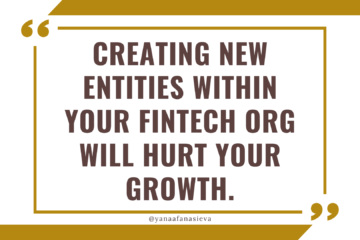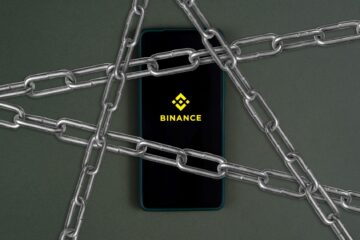Let’s talk about NFTs!
First of all – what is an NFT (Non-Fungible Tokens) from the regulatory perspective? Or, in other words – what do you actually buy, when you buy an NFT?
In most cases, what you buy is a digital certificate linked to an image, graphics, video or audio file, gaming avatar, or 3D image stored either on the specific URL on the internet. In some cases, anyone can access the image, view and download it, but the owner of the token is supposed to have the right to the digital asset.
Are NFTs really enabling artists and creatives to have true ownership over the work they create, enforcing their intellectual property rights, and allowing them to benefit from future sales?
No! That’s why I am strongly convinced that we are in the massive NFT bubble. When you buy an NFT, you have to understand that your purchase is governed by the Terms of Service of the platform where you bought it. Most platforms don’t do any due diligence around the provenance of the asset and have no idea who uploaded the asset, whether it was a legit owner or an actual creator of the asset, and who buys the assets. They tell you that the responsibility is on you to verify the legitimacy of the assets and they have no responsibility whatsoever for what you are buying and whether it’s legal.
If you create an NFT and then sell it – who is the owner? What’s the relationship between the owner and the creator and is it legitimately possible to expect the royalties?
In most cases, the relationship between the creator of the asset and the owner of the asset would be governed by a specific agreement, defining what is it that someone is buying: derivative rights, full rights, distribution rights, a license to use, a transferrable license, an exclusive license or non-exclusive license, etc. Some NFT trading venues define it, some don’t define it, but in most cases, those definitions won’t be enforceable in court anyway because they define it poorly, don’t identify counterparties, don’t define the asset, and miss a lot of other important parameters necessary for the enforcement of the intellectual property rights. In the most simplistic terms, the rights to the asset you are buying would follow the definition of the platform where you bought it but if you purchased something from the non-legit owner without knowing it, what you bought is worthless.
Are NFT marketplaces legit?
Not quite, in my humble opinion. What happens with NFT trading now is a repetition of the hyped early days of eBay or early days of ICOs. It sounds cool, lots of people try to get in just for the fun of it, some people will run away will the money, and few platforms will survive by having to register, introduce KYC and AML checks and perform basic support, due diligence, and dispute resolution that is expected from other marketplaces, such as eBay, Etsy, Uber, etc. NFT marketplace activities are technically not forbidden but since there is no real governance around it, in most cases people who spend money buying NFTs these days will likely end up with nothing apart from the great memories that they were in this game among the first. I do expect a lot of complaints, disputes, enforcement actions, regulatory warnings, and scam revelations in this space in the next few months, if not sooner.
Are NFTs securities?
Most likely not, unless this is a token that has been structured in a very sophisticated way, properly registered, issued with accompanying clear promises of future benefits, and has an enforcement mechanism around future cash flows.
Is there something good about NFTs at all?
Absolutely. To me, it is the factor of crypto adoption because, in addition to the traditional circle of techies and finance professionals, NFTs attracted to crypto are entirely different crowd – artists, creatives, gamers, designers, athletes, celebrities, and their fans. Once you are in crypto, you would likely never turn back.
Should you create your own NFT?
This is what I recently did using the OpenSea platform. I personally view it as a purely vanity-driven fun project, allowing me to go through the end-to-end process of creating and listing an NFT, moving it across various platforms, and seeing what happens. Stay tuned for updates.


